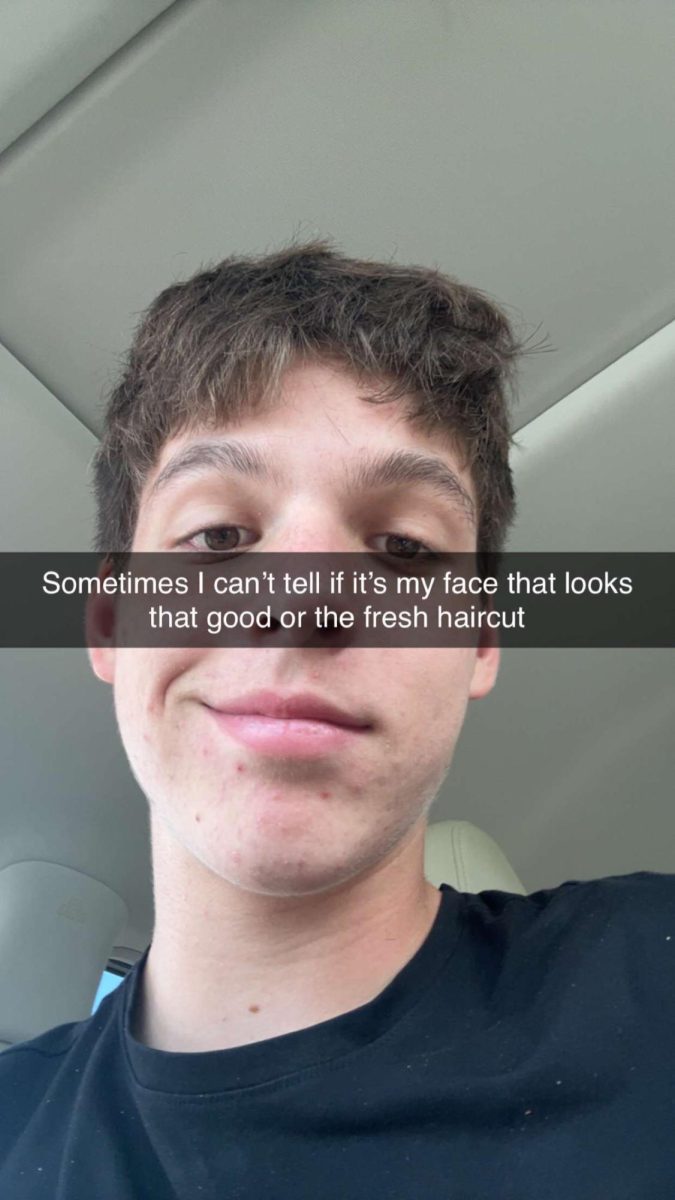Facing My Future In Florida
A Legacy Article
Thousands of students from USF and other colleges participate in a campus-wide walkout to protest numerous efforts by the DeSantis administration to change school curriculums.
May 24, 2023
Before I walk across the stage at graduation, I will walk the halls of my elementary school for the last time, where I’ll be greeted by the wide-eyed ingenuous students who will soon be in my position, wondering where the time went. Walking through the school, I’ll look back at my own education and the enriching resources and experiences I was lucky to have.
After receiving all thirteen years of my K-12 education in Florida, it pains me to witness the extreme limitations of the state’s recent legislation – forbidding discussions of race, gender, and sexuality in all grades including the banning of books from classroom libraries, which I now realize is something I took for granted.
More recently, it seems as though every day there is new legislation being proposed or passed, restricting education and the rights of the queer community in Florida. In the wake of the wave of legislation taking aim at LGBTQ+ issues, some people are making the decision to abandon their lives here. While many other LGBTQ+ students are taking the opportunity to attend out-of-state colleges and flee the state, I refuse to let the discriminatory state legislation take away the life that I built for myself here.
By making the choice to stay in Florida and pursue a career in journalism, obtaining my Bachelor’s Degree in Digital Communications and Multimedia Journalism at the University of South Florida in St. Petersburg, I need to have the ability to be a part of the student voice and advocate for myself and other students within the community and the state of Florida. At USF I’ll be among students who value diversity and immerse myself in the student newspaper, diverse student culture, pride alliance, multicultural clubs, and journalistic endeavors.
Being excited and eager to start my future at USF and their student newspaper, The Crow’s Nest, is bittersweet. With the rapid changes being made to Florida’s legislation and bills impacting education, I fear for both my future as an undergraduate student and the future of every child receiving a K-12 education that will be further affected by the state legislations.
Legislation passed recently, including Governor DeSantis’s signed bill to defund college diversity programs, the “Let Kids Be Kids” bill restricting gender affirming care, Stop W.O.K.E Act, and the Don’t Say Gay Bill, all aim to censor the identities of students, turning a blind eye to the discrimination and cultural adversities of the groups and individuals prohibited from classroom discussions and curriculums.
Colleges like the New College of Florida, which have had values that fall out of line with the governor’s anti-LGBTQ+ agenda, run the risk of being a target for the restrictive legislation. Limitations of student voice and diversity studies may be an issue for the educational endeavors of some students whose career paths rely on issues surrounding race, gender, and sexuality.
Impatience for my upcoming freshman year and overall experience at USF has led me to immerse myself in the school’s clubs, events, and culture portrayed through posts on social media. From providing therapy kittens to having a float in the MLK Day Parade, the campus promotes the well-being and individuality of every student. Experiencing the welcoming campus environment and community for myself during campus tours, visits, and orientation swayed my decision to attend the college and stay close to what I know. While I anticipate new opportunities in my future, I also fear the restrictions to my education that come with Florida’s future.
Running away from Florida’s laws to states where they don’t apply does not mean that the laws cease to exist for the remaining affected residents of Florida. In the same way, students graduating high school could still have their education impacted by the state legislation at their colleges and universities. The elimination of major studies including Critical Race Studies, Critical Ethnic Studies, Radical Feminist Theory, Radical Gender Theory, Queer Theory, and Critical Social Justice is just one of the jabs taken at recognizing race, gender, and sexuality.
On Thursday, May 15th, Governor DeSantis signed legislation that defunds DEI programs at all public universities in Florida. Under the law, Florida state universities are barred from spending state or federal funds to promote, support or maintain any programs that advocate for diversity, equity, and inclusion, or promote or engage in political or social activism. DeSantis signed the legislation at New College of Florida, where he has been steering a conservative takeover. The governor has decried a campus culture that he views as overly focused on issues of racial, gender and LGBTQ+ equity.
With a previous understanding built on respect and maintaining equality to try and resolve issues surrounding race, gender, or sexuality, the new legislation limits the freedoms of both journalism and my education and the paths in which I can travel as a writer. Other students taking a stand at USF, UCF, FIU, and UNF have recognized the threat to their freedom and are protesting their rights.
A couple hundred USF students participated in a campus-wide walkout, along with thousands of other students from other schools across the state, to protest efforts by the DeSantis administration to change curriculum at schools, repeal diversity, equity and inclusion programs, and restructure New College of Florida.
Thousands of students are taking the stand to fight for their freedom under the first amendment and speak on what is important. This is why the Fourth Estate is of utmost importance. In these times of conspiracy theories, ‘fake news’, alternative facts the Fourth Estate plays a crucial role in providing citizens with access to information about what is happening in government and holding elected officials accountable for their actions.









Jeanna Pernak • May 25, 2023 at 7:53 AM
What a wonderful and well stated article! I am so extremely proud of you Sophia, and the paper for allowing all of you your right to free speech.